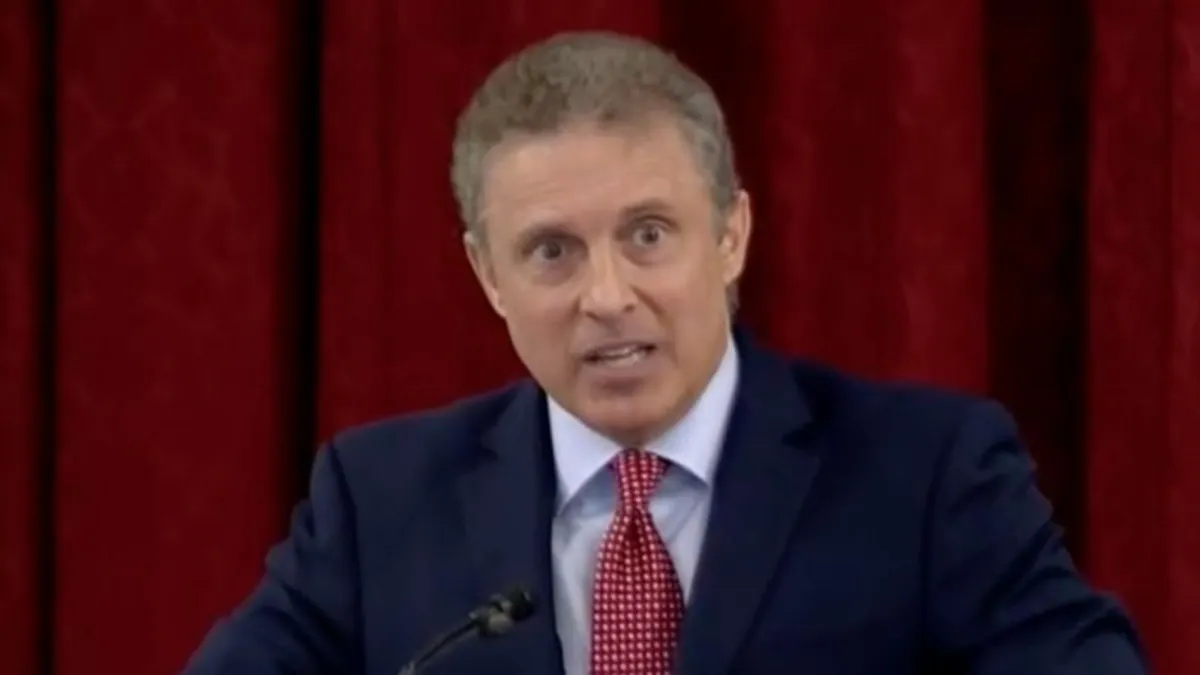
A federal appeals court has granted President Donald Trump the authority to remove the head of a government watchdog agency while a legal challenge concerning his firing is still pending. In a brief, unsigned order released on Wednesday afternoon, the DC Circuit Court of Appeals approved a request from the Trump administration to pause a lower-court ruling that deemed Trump's firing of Hampton Dellinger as unlawful. The previous ruling had stated that Dellinger, who serves as the head of the Office of Special Counsel (OSC), was entitled to remain in his position.
The appeals court's order explicitly stated, “This order gives effect to the removal of appellee from his position as Special Counsel of the U.S. Office of Special Counsel.” The court further noted that the appellants had met the stringent requirements for a stay pending appeal, indicating a serious examination of the case ahead.
As the legal battle unfolds, it’s anticipated that Dellinger might appeal the court’s order to the US Supreme Court on an emergency basis. This case has previously reached the high court, making its way into the spotlight once again. CNN has reached out to Dellinger’s office for comments regarding the current developments.
This recent court order marks a significant turn in Dellinger’s ongoing struggle to retain his position after Trump’s decision to fire him in early February. In previous legal proceedings, Dellinger was able to remain in office while a federal judge in Washington, DC, deliberated over the legality of his dismissal.
In a major ruling issued last Saturday, Judge Amy Berman Jackson rejected Trump’s argument that the federal law stipulating the removal of the special counsel “only for inefficiency, neglect of duty, or malfeasance in office” was unconstitutional. Judge Jackson emphasized the importance of the special counsel's role, stating, “The special counsel’s job is to look into and expose unethical or unlawful practices directed at federal civil servants, and to help ensure that whistleblowers who disclose fraud, waste, and abuse on the part of government agencies can do so without suffering reprisals.”
She further added, “It would be ironic, to say the least, and inimical to the ends furthered by the statute if the Special Counsel himself could be chilled in his work by fear of arbitrary or partisan removal.” This statement highlights the critical function of the Office of Special Counsel in safeguarding whistleblowers within the federal workforce.
Throughout the legal proceedings, Trump had previously appealed to the Supreme Court for intervention regarding his authority to fire Dellinger. However, the Supreme Court opted to delay any immediate action, choosing instead to wait for lower courts to assess the legality of the dismissal.
As Dellinger holds a significant independent role aimed at protecting federal civil servants from retaliation, the Office of Special Counsel has gained unprecedented importance during Trump’s presidency, particularly in light of his administration’s focus on political loyalties among government employees. It is essential to note that the OSC operates independently from special counsels appointed for politically sensitive investigations, such as Jack Smith or Robert Mueller.
Following Judge Jackson’s ruling, Trump, represented by the Justice Department, quickly sought to have the DC Circuit put a hold on the order. The administration argued that the Constitution grants the President the power to remove heads of agencies, including the Special Counsel, at will. In contrast, attorneys representing Dellinger urged the appeals court to deny the administration’s request, advocating for a thorough review of the case's merits without compromising the stability of the Office of Special Counsel in the interim.
This evolving story continues to capture attention as it underscores the complex interplay between the executive branch and independent oversight agencies in the federal government.